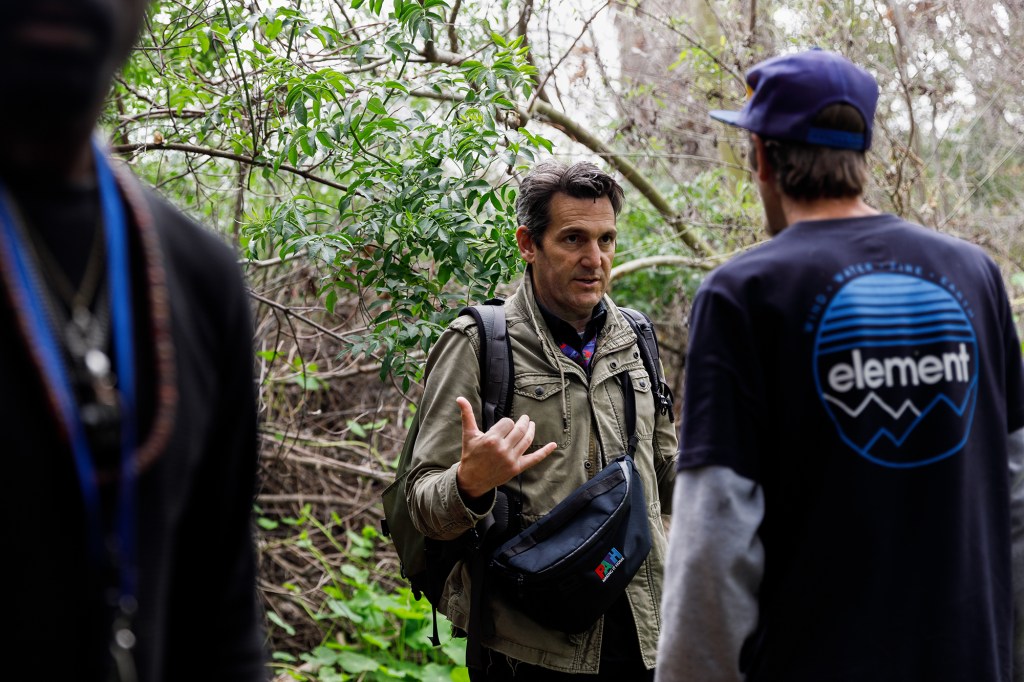Being “homeless” can mean many things.
The term encompasses families unable to make ends meet, veterans struggling to adapt to civilian life and residents wrestling with addiction. However, the most visible form of homelessness is perhaps the individual who’s constantly being arrested or calling 911. The needs may be complex — mental illness is sometimes a factor — and their regular presence in jails and hospitals can cost taxpayers vast amounts of money.
Yet budget cuts in the city of San Diego threaten to reduce the number of outreach workers who are focused on those complicated cases.
In June, Mayor Todd Gloria used his line-item veto power to change several of the City Council’s recent spending decisions, and the list included a $250,000 cut from what’s known as the Multi-Disciplinary Outreach Team. “The City continues to invest in a wide range of effective homeless outreach strategies,” Gloria’s office said at the time in a statement, “but the Mayor does not support this addition in light of fiscal constraints.”
Some council members tried to restore those dollars but the effort failed amid a citywide deficit. That’s left the outreach team relying on a one-time state grant worth $750,000 that should last, at most, through next summer. The group had almost twice as much money the previous fiscal year when the city helped finance the initiative. “Unless ongoing funding is identified by the middle of the fiscal year, the program will begin ramping down operations,” Scott Marshall, a spokesperson for the San Diego Housing Commission, wrote in an email.
Officials are already considering cutting the team’s size and reducing how much direct aid is available to homeless residents. The process of closing the entire operation could begin as soon as January.
The Multi-Disciplinary Outreach Team is run by the nonprofit People Assisting The Homeless, or PATH. (Father Joe’s Villages also provides health care to participants.) Each member of the team assists only five or six homeless residents at a time, a small caseload that lets outreach workers spend concentrated hours with people before and after they’re housed.
Last year, the group helped 36 individuals, most of whom had long been homeless, according to PATH. Many on the street feel they’ve been ignored or mistreated by other support systems, so staffers often first focus on more basic needs, like clean water or wound care. In 2024, the team provided some form of service 1,167 times, PATH said.
“It’s little baby steps,” Angie Striepling, director of housing initiatives at PATH San Diego, said in an interview before the cuts were announced. You “try to connect and try to connect and try to connect.” Striepling shared a story of one woman sleeping outside who, for unclear reasons, would barely speak. After months of visits (and gifts of fresh coffee) the woman finally expressed interest in staying at a shelter, and leaders were ecstatic about where that might lead.
Yet the shift to living indoors can be tricky. “My clients, when they finally get into shelter, they don’t sleep in the bed,” said Jenna Halseth, another member of the team. “They sleep under the bed because they’ve been on the street so long.”
The group got 11 residents into permanent housing last year while another individual was connected to a temporary home. “It’s a big transition,” added Halseth, who spends much of her time helping people adapt to their new environment. But regular follow-ups appear to be paying off: PATH leaders said around 85% of those who’ve gotten housing stayed housed.
If the team does end, the mayor’s office is hopeful that other outreach and service groups can pick up at least some of the slack. San Diego’s “larger Coordinated Street Outreach Program will continue delivering life-changing opportunities,” spokesperson Matt Hoffman wrote in an email. Forty outreach workers are part of that initiative.
In addition, the San Diego Fire-Rescue Department has what’s called a Resource Access Program to aid those frequently dialing 911 and San Diego police created an Intervention Services Team to focus on people struggling with mental health or addiction.
